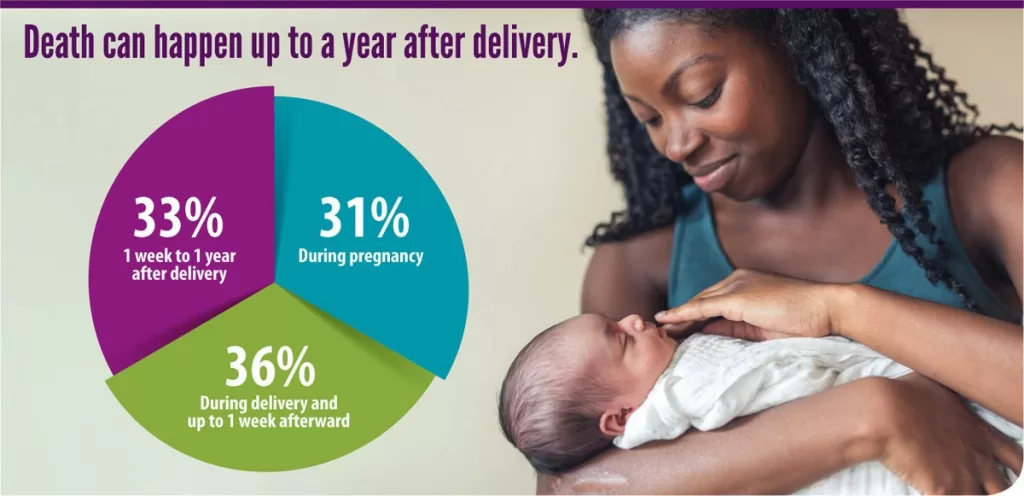Maternal mortality is a critical issue that demands urgent attention, especially within the context of pregnancy complications faced by women worldwide. Tragically, the story of Arika Trim, a vibrant 29-year-old college graduate who worked closely with influential figures such as former first lady Michelle Obama, underscores the severe implications of inadequate maternal health awareness. Despite being well-informed about pregnancy risks, Trim’s untimely death highlights the alarming statistics surrounding maternal mortality, particularly among Black women. This urgent situation calls for a collective effort to improve health outcomes and provide better support during and after pregnancy. By raising awareness and addressing systemic disparities, we can strive to ensure that no family has to endure the heartache of losing a loved one to complications related to pregnancy.
The concept of maternal mortality encompasses the tragic loss of women during or shortly after childbirth, often due to various health challenges that arise during pregnancy. Such incidents are often linked to pregnancy complications that are exacerbated by factors like inadequate healthcare access, particularly impacting the health of Black women. Women like Arika Trim serve as poignant reminders of the disparities that exist within maternal health systems, raising essential conversations around equity and care in maternal health. By focusing on elevating awareness and facilitating dialogues around pregnancy risks, communities can work towards breaking the cycle of preventable deaths related to childbirth. It is imperative that we embrace a holistic approach to maternal health that addresses both individual and systemic factors contributing to these alarming statistics.
Understanding Maternal Mortality Among Black Women
Maternal mortality remains a significant public health issue, particularly affecting Black women at alarming rates. Recent studies have shown that Black women are three to four times more likely to die from pregnancy-related complications compared to their white counterparts. Factors contributing to this disparity include systemic racism in healthcare, lack of access to quality prenatal care, and underlying health conditions prevalent in some minority populations. These statistics highlight the urgent need for increased maternal health awareness to address the challenges faced by Black women during pregnancy.
The tragic case of Arika Trim underscores the reality of maternal mortality among Black women. Despite being highly educated and informed about her health, Arika experienced complications that ultimately led to her untimely death. Her family wishes to shine a light on how pregnancy complications can affect well-informed women, reinforcing the idea that education alone cannot conquer the complex web of societal and medical barriers that disproportionately impact Black mothers. Advocacy for better healthcare systems and informed support networks is essential to safeguarding maternal health.
Frequently Asked Questions
What is maternal mortality and why is it significant for Black women health?
Maternal mortality refers to the death of a woman during pregnancy, childbirth, or within 42 days after delivery due to pregnancy-related complications. It is a significant concern for Black women health, as studies show they experience higher maternal mortality rates compared to other demographics, often due to systemic health disparities and lack of access to quality care.
How can pregnancy complications lead to higher rates of maternal mortality?
Pregnancy complications, such as hypertension, hemorrhage, and infections, can significantly increase the risk of maternal mortality. For many Black women, these complications are exacerbated by existing health inequalities, socio-economic factors, and insufficient prenatal care, highlighting the need for improved maternal health awareness.
What role does maternal health awareness play in reducing pregnancy risks?
Maternal health awareness plays a crucial role in reducing pregnancy risks by educating expectant mothers about potential complications and encouraging proactive healthcare practices. By raising awareness about maternal mortality and common pregnancy complications, women can seek medical advice early and better manage their health throughout pregnancy.
How did Arika Trim’s story highlight the issue of maternal mortality?
Arika Trim’s story underscores the tragic impact of maternal mortality, particularly among informed women. Despite her education and awareness about pregnancy risks, Arika faced severe complications that led to her death. Her family emphasizes the urgent need for better support and healthcare systems to protect pregnant women, especially Black women.
What steps can be taken to improve maternal health among Black women?
Improving maternal health among Black women requires a multi-faceted approach, including increasing access to quality prenatal care, enhancing education on pregnancy risks, and advocating for systemic changes in the healthcare system. Community support and engagement are also essential in raising maternal health awareness and reducing the rates of maternal mortality.
| Key Point | Details |
|---|---|
| Subject of Concern | Maternal mortality among Black women |
| Case Study | Arika Trim, a 29-year-old woman, died from pregnancy complications. |
| Background | Arika Trim was highly educated, having worked for the House of Representatives and former first lady Michelle Obama. |
| Family Statement | Her family is raising awareness about the risks of maternal mortality in hopes of preventing further tragedies. |
Summary
Maternal mortality is a critical issue that continues to affect countless families, as evidenced by the tragic case of Arika Trim. Despite her education and awareness of pregnancy risks, Arika’s experience highlights the disturbing reality that even well-informed women can face severe complications during pregnancy. The alarming rates of maternal mortality, especially among Black women, necessitate urgent action and awareness to prevent future incidents. By sharing their story, Arika’s family aims to shine a light on this public health crisis, underscoring the importance of adequate healthcare and support for all mothers.
The content provided on this blog (e.g., symptom descriptions, health tips, or general advice) is for informational purposes only and is not a substitute for professional medical advice, diagnosis, or treatment. Always seek the guidance of your physician or other qualified healthcare provider with any questions you may have regarding a medical condition. Never disregard professional medical advice or delay seeking it because of something you have read on this website. If you believe you may have a medical emergency, call your doctor or emergency services immediately. Reliance on any information provided by this blog is solely at your own risk.








